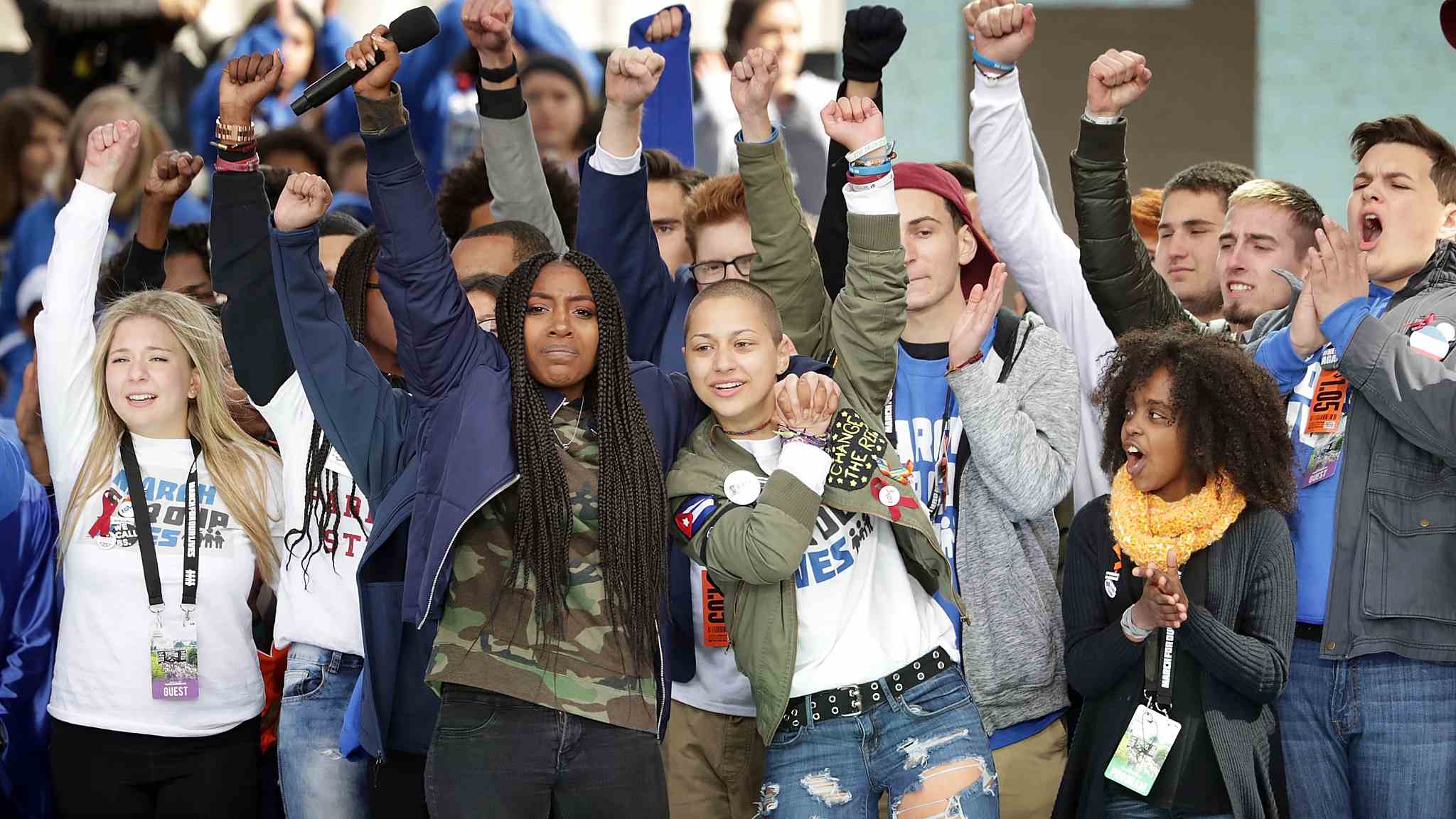In March, their voices rang out in Washington, D.C., as they called for stricter gun control. In August, they got new road safety legislation enacted in Bangladesh. In December, one of them put world leaders in their place at a major climate conference in Poland.
2018 saw teenagers and young activists around the world mobilize more than maybe ever before.
Although many are not yet old enough to vote, they voiced demands and concerns in a way that made politicians look up and listen.
A new generation
Young activists are nothing new. Malala Yousafzai, Nkosi Johnson and Iqbal Masih are just some of the children and teenagers who have made a mark campaigning for girls' education, HIV/AIDS awareness or against child slavery in recent years.
But a new generation is casting a much wider net when it comes to issues.
The
March for Our Lives in Washington, DC, started after survivors of the Parkland high school shooting in Florida decided enough was enough and joined forces to push for stricter gun control.
The
movement's leaders then channeled their support into registering voters ahead of crucial U.S. midterms in November.
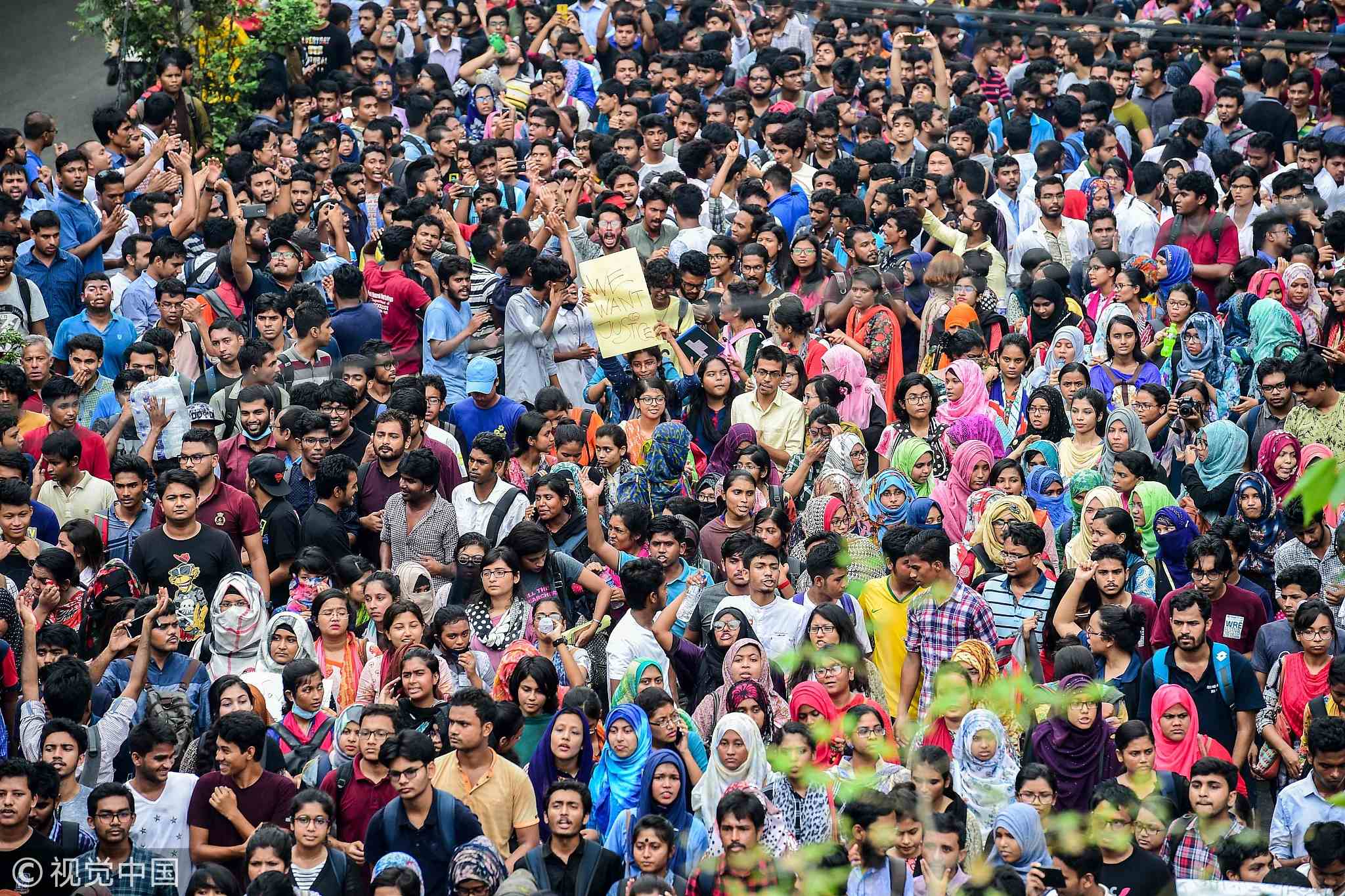
Bangladeshi students protest in Dhaka following the deaths of two students in a road accident, August 5, 2018. /VCG Photo
Bangladeshi students protest in Dhaka following the deaths of two students in a road accident, August 5, 2018. /VCG Photo
In Bangladesh, high school students took to the streets demanding better road safety after two teenagers were killed by a speeding bus.
At the COP24 conference in Katowice, Poland, 15-year-old Greta Thunberg of Sweden made headlines when she chided world leaders, saying they were "not mature enough" to properly tackle climate change.
You say you love your children above all else and yet you are stealing their future.
- Greta Thunberg — COP24 Climate Change Conference, December 14, 2018
In the past, gun ownership or the environment may have been considered "grown-up" issues, but that is no longer true.
"We are the generation that has to perform annual school shooter drills, that learns how to barricade doors and jump out of windows. We are the generation that has to face the crippling effects of climate change and the plummeting biodiversity of the world," Julia Chang, executive director at
Redefy, a U.S. non-profit "by teenagers for teenagers", told CGTN.
The platform — under the slogan "It's time to rebel for something worth rebelling for" — aims to empower schools and communities to fight discrimination. Chang is 17.
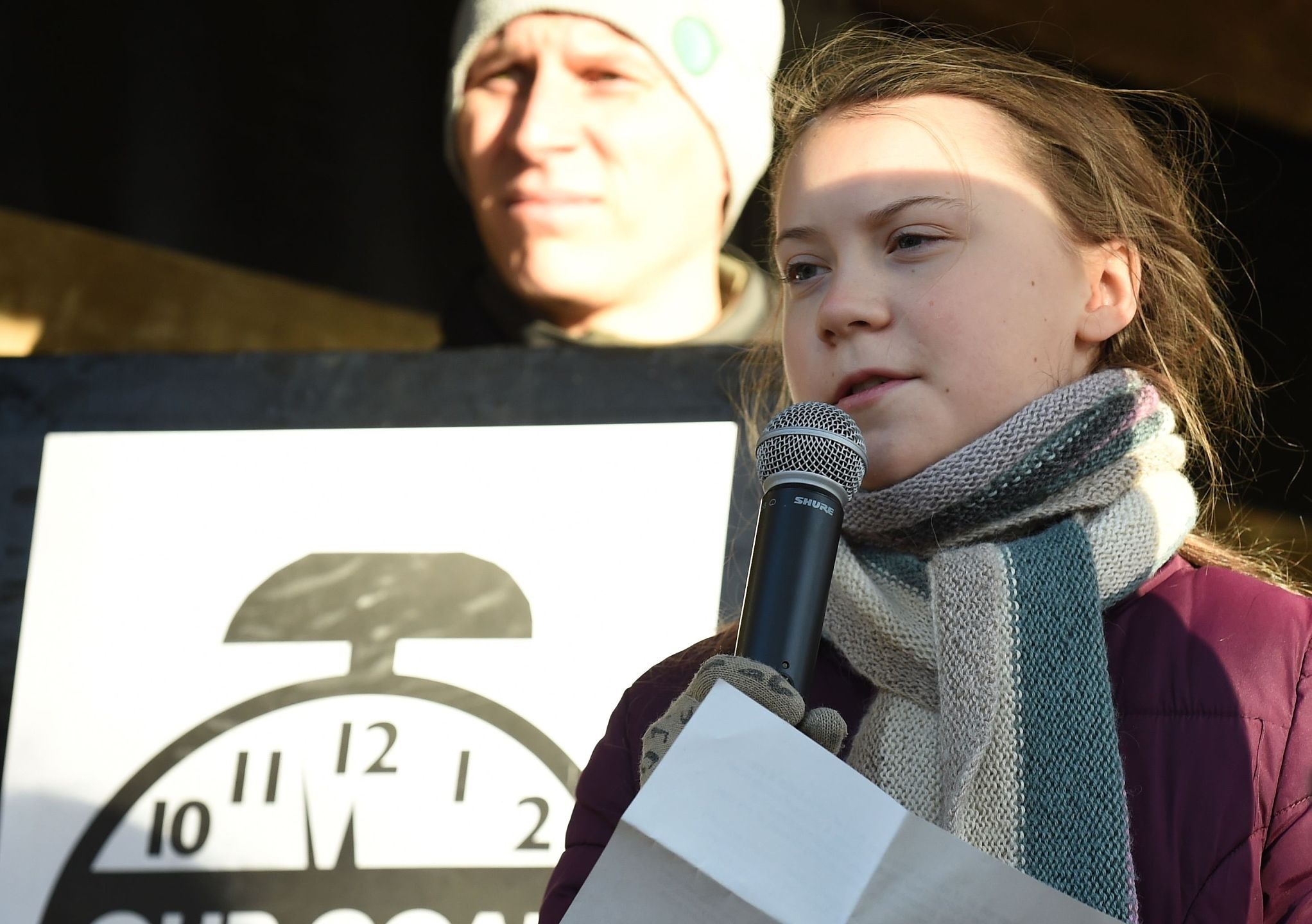
Swedish climate activist Greta Thunberg, 15, speaks during a march on sidelines of the COP24 climate change summit in Katowice, Poland, December 8, 2018. /VCG Photo
Swedish climate activist Greta Thunberg, 15, speaks during a march on sidelines of the COP24 climate change summit in Katowice, Poland, December 8, 2018. /VCG Photo
"For teenagers, issues like mass shootings and climate change are realities, and that makes us better-equipped and more driven to enact change than anyone," she said.
"Frankly, it is ridiculous that some adults believe that they are more qualified to speak and act on certain issues which teens know more intimately than anyone."
Connected and disillusioned
Experts note that every generation has had its rebels and protesters.
But a combination of factors, including the spread of social media and the 2007 financial crisis — which brought along stark austerity policies, leaving young people with fewer jobs and more uncertainty — have shaped the one we are seeing now.
"Young people are increasingly aware of the many young people living in precarious circumstances around the world. They are more aware due to globalization combined with the advent and democratization of digital technologies," Sarah Pickard, an expert on young people and political participation at Paris's Sorbonne University, told CGTN.

Protesters demonstrate against gun violence in a nationwide day of action in Portland, Oregon, March 24, 2018. /VCG Photo
Protesters demonstrate against gun violence in a nationwide day of action in Portland, Oregon, March 24, 2018. /VCG Photo
This is coupled with "disappointment and disillusionment with institutional politics and politicians who tend to focus on the 'grey vote' rather than the 'youth vote.'"
We are children who are being expected to act like adults, while the adults are proving themselves to behave like children.
- Parkland student Emma Gonzalez — Harper's Bazaar, February 26, 2018
As a result, "young people are bypassing the state and elected politicians by taking politics into their own hands" without waiting for elections, according to Pickard.
Making a difference
Their efforts are already meeting with some success.
In Bangladesh, the government approved harsher sentences for anyone found guilty of causing an accident through reckless driving, following the August protests.
"We are witnessing something unprecedented… our roads are starting to function in a proper and efficient manner," noted an editorial in the Dhaka Tribune at the time. "And the credit for this goes to all the students out there protesting."
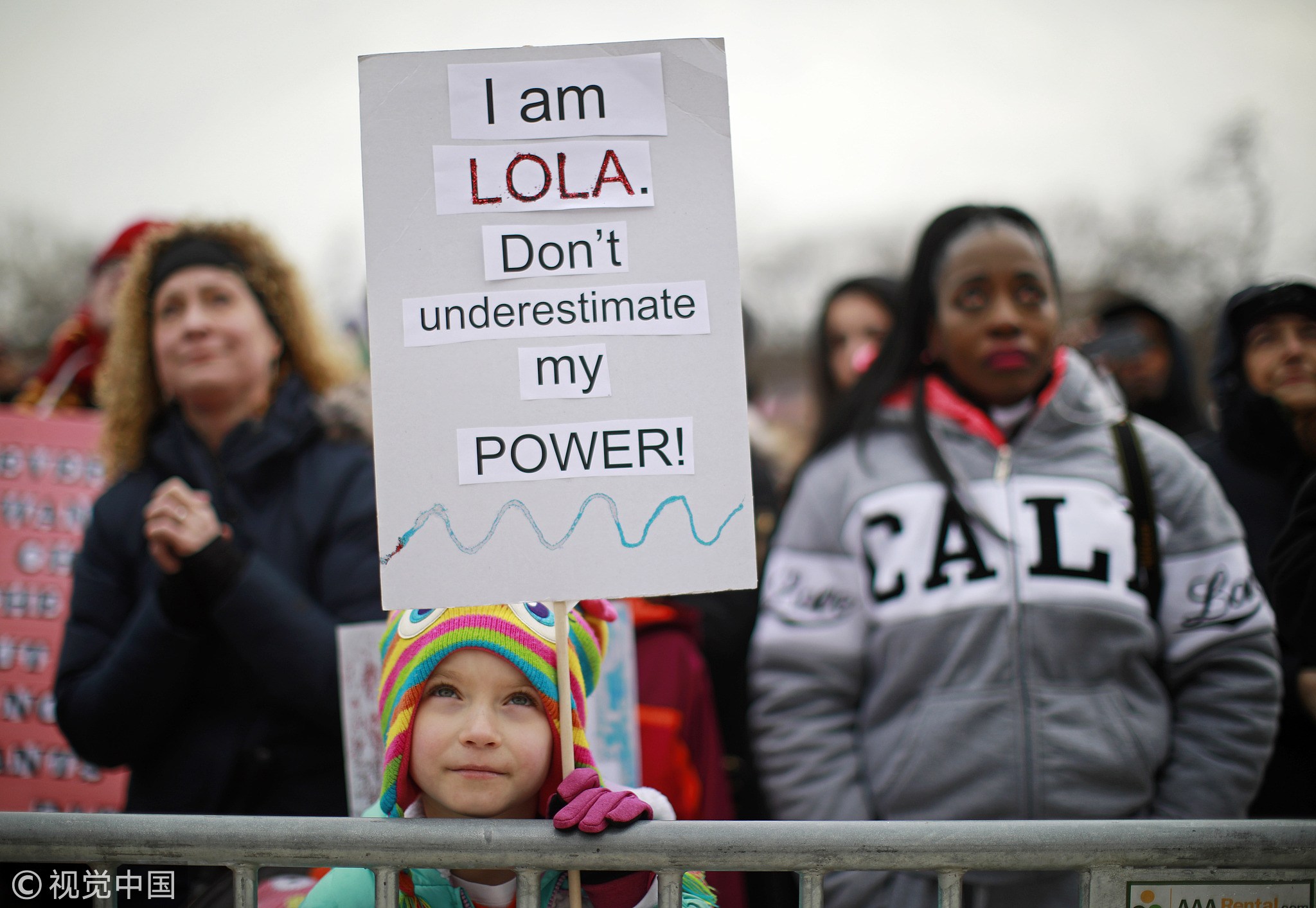
A girl listens to remarks during the March for Our Lives rally in Chicago, Illinois, March 24, 2018. /VCG Photo
A girl listens to remarks during the March for Our Lives rally in Chicago, Illinois, March 24, 2018. /VCG Photo
In the U.S., between one and two million people joined the March for Our Lives, and related protests were held around the world in support.
Some U.S. states have now passed stricter gun laws. Efforts to register young voters and keep gun control on the agenda also helped elect a number of representatives in November midterms.
The tip of the iceberg
These were the most visible actions over the past 12 months. But do a Google search for "young activist" and you'll find dozens of articles, including from MTV and Teen Vogue, listing the "30 activists under 30 who are changing the world" or "young activists who made history this year".
Many, like the people at Redefy or
DoSomething.org, operate online and are not as high-profile as the headline makers. But they are still working towards social change.
"When you take a look at governments around the entire globe today, they are made up by and large of men over the age of 60—people who fundamentally don't reflect who the younger generations are," noted Chang.
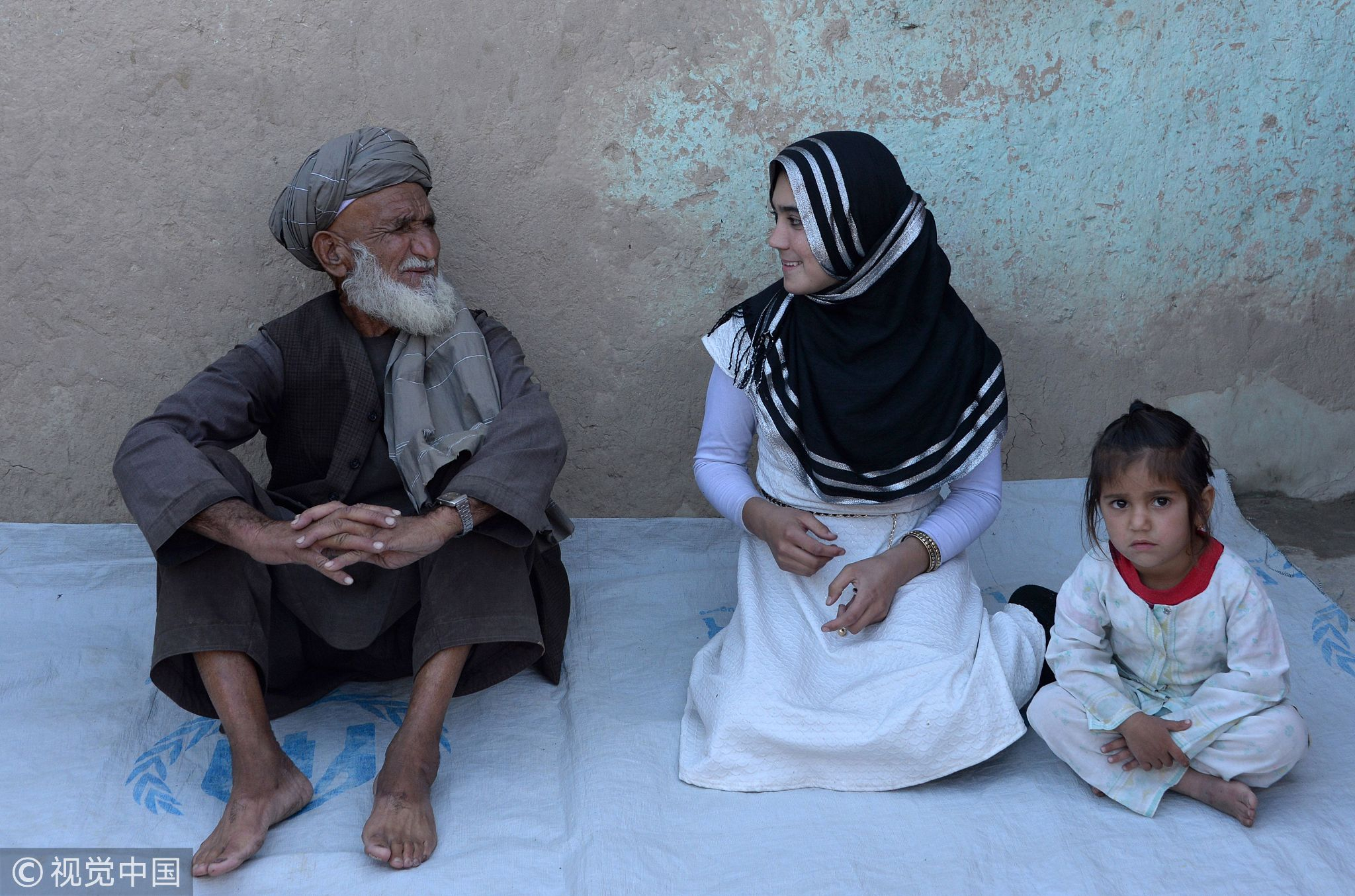
Afghan rights campaigner Aziza Rahimzada (C), 14, speaks with her father Jandad Rahimzada (L) at her temporary home at a refugee camp in Kabul, October 17, 2015. /VCG Photo
Afghan rights campaigner Aziza Rahimzada (C), 14, speaks with her father Jandad Rahimzada (L) at her temporary home at a refugee camp in Kabul, October 17, 2015. /VCG Photo
"If we want our beliefs and values represented and implemented as policy, we need to be turning heads… It's ultimately up to us to create our own spaces for change."
Despite repeated claims that today's young generation is disconnected and apathetic, the recent number of youth-led protests and actions shows young people are involved and interested, said Chang.
"We are a generation of passionate problem-solvers. Our perspectives matter."
People have said that I am too young to have these thoughts on my own.... We might still be in elementary school but we know life isn't equal for everyone and we know what is right and wrong.
- Naomi Wadler — March for Our Lives, March 24, 2018
Past movements have quickly fizzled out, but there are signs this wave of youth activism could be around for a while.
For Pickard, "it is likely to last as long as politicians do not take young people and young people's political participation seriously."
Chang agreed: "The future is in great hands."
(Top picture: Students from Marjory Stoneman Douglas High School, including Emma Gonzalez (C), stand on stage with other young victims of gun violence at the March for Our Lives rally in Washington, DC, March 24, 2018. /VCG Photo )

